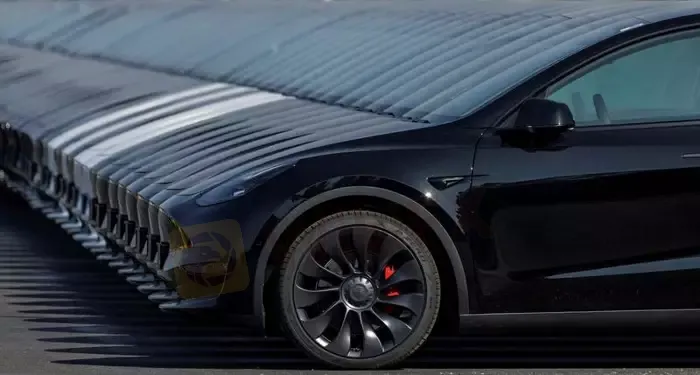简体中文
繁體中文
English
Pусский
日本語
ภาษาไทย
Tiếng Việt
Bahasa Indonesia
Español
हिन्दी
Filippiiniläinen
Français
Deutsch
Português
Türkçe
한국어
العربية
Indonesia says Tesla strikes $5 billion deal to buy nickel products – media
Abstract:U.S. carmaker Tesla has signed contracts worth about $5 billion to buy materials for their batteries from nickel processing companies in Indonesia, a senior cabinet minister told CNBC Indonesia.

Southeast Asias biggest economy has been trying to get Tesla to set up a production facility in the country, which has major nickel reserves. President Joko Widodo met with Tesla founder Elon Musk earlier this year to drum up investment.
“We are still in constant negotiation with Tesla … but they have started buying two excellent products from Indonesia,” Coordinating Minister for Maritime and Investment Affairs Luhut Pandjaitan said in an interview broadcast on Monday.
He said Tesla signed a five-year contract with nickel processing companies operating out of Morowali in Sulawesi island. The nickel materials will be used in Teslas lithium batteries.
Tesla did not immediately respond to a Reuters email seeking comment.
Indonesia is keen to develop electric vehicles and batteries industries at home and had stopped exports of nickel ore to ensure supply for investors. The move had successfully attracted investments from Chinese steel giants and South Korean companies like LG and Hyundai.
However, most nickel investment so far have gone to production of crude metal such as nickel pig iron and ferronickel.
The government plans to impose export tax on these metals to boost revenue while encouraging more domestic production of higher-value products, a senior official told Reuters last week.

Disclaimer:
The views in this article only represent the author's personal views, and do not constitute investment advice on this platform. This platform does not guarantee the accuracy, completeness and timeliness of the information in the article, and will not be liable for any loss caused by the use of or reliance on the information in the article.
Read more

Exposed: Deceptive World of Fake Trading Gurus – Don’t Get Fooled!
The internet is inundated with advertisements and promotions from self-proclaimed trading gurus who promise to teach you how to become a successful trader and earn a substantial secondary income. These individuals often claim that their trading techniques can make you rich, even if you have zero experience. However, these assertions are typically false, and many people fall victim to these scams. This article aims to expose these fake trading gurus, explain how they operate, and provide tips on how to avoid being scammed.

Navigating the Intersection of Forex Markets, AI Technology, and Fintech
The financial world is transforming, driven by the rapid integration of artificial intelligence (AI) and innovative fintech solutions. This change is most apparent in forex markets, where algorithmic trading and deep learning are redefining strategies, risk management, and decision-making. In this article, we explore how AI-driven technologies are not only revolutionizing forex trading but are also propelling fintech innovations that enhance customer experiences, bolster security, and unlock new market opportunities.

The One Fear That’s Costing You More Than Just Profits
The fear of missing out (FOMO) is NOT what you think it is! Read the three lesser-discussed components that contribute greatly to FOMO trading!

Why More People Are Trading Online Today?
Discover why online trading is booming with tech, AI, and a push for financial freedom. From stocks to crypto, it’s a thrilling hustle for all.
WikiFX Broker
Latest News
Fidelity Investments Explores Stablecoin Innovation in Digital Assets Sector
Interactive Brokers Expands Crypto Trading with Solana, XRP, Cardano, and Dogecoin
SEC Ends Crypto.com Probe, No Action Taken by Regulator
Why More People Are Trading Online Today?
How Crypto Trading Transforms FX and CFD Brokerage Industry
UK would not hesitate to retaliate against US tariffs - No 10 sources
Gold Surges to New Highs – Is It Time to Buy?
Bitpanda Secures Full Broker-Dealer License in Dubai
Lost Money to Scam Recently?! This Article Could Help You!
Navigating the Intersection of Forex Markets, AI Technology, and Fintech
Currency Calculator







